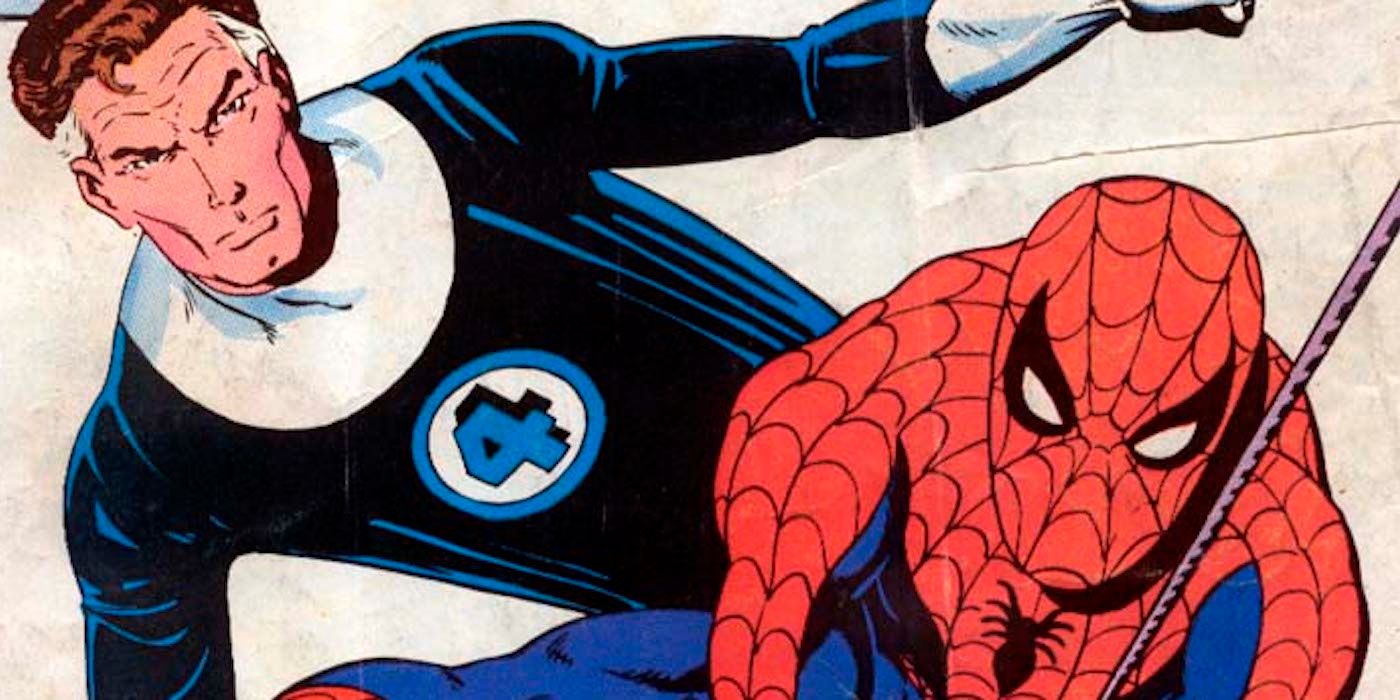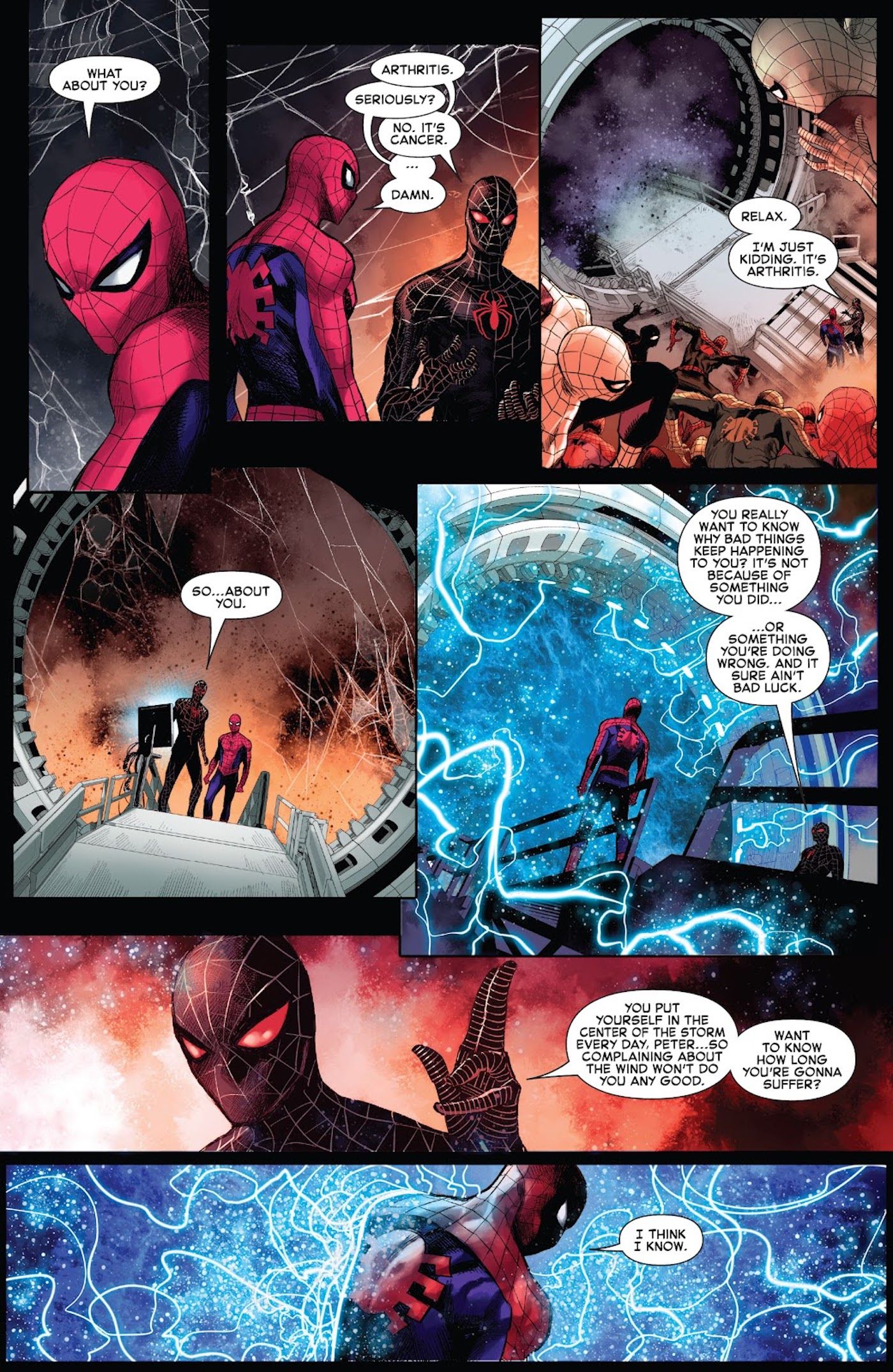This article contains SPOILERS for Amazing Fantasy #1000The Silver Age of Comics in the 1960s saw the rise of two iconic Marvel heroes in Peter Parker's Spider-Man and Reed Richards' Mr. Fantastic. In a landmark anniversary for the former, Amazing Fantasy #1000 uses a device of Richards' own creation to show one reason why Peter Parker will always be the greatest hero in Marvel Comics.
Jonathan Hickman's Dark Reign: Fantastic Four #1 introduces audiences to the Bridge, a device created by Mr. Fantastic to view parallel universes. Though Reed intended to use the Bridge to see what allowed events such as Secret Invasion and Civil War to happen, it eventually introduced him to the Interdimensional Council of Reeds, alternate versions of himself from throughout the multiverse. Reed of Earth-616 eventually departed from the Council during their battle with their Celestial nemeses after realizing he'd have to abandon his own family back home to assist them in their quest of using their intellect to help the multiverse.
Jonathan Hickman brought the Bridge back with a fun twist in this year's Amazing Fantasy #1000. Hickman and artist Marco Checchetto's "You Get It" shows Peter Parker use the Bridge to get advice from alternate versions of himself, asking how they all handle the dreaded streak of misfortune known as the "Parker luck." After being pranked by his fellow Spider-Men, Peter realizes that all present versions of himself from the multiverse have the same luck, stemming from a simple fact: it's who they are. As one Spider-Man puts it, "You put yourself in the center of the storm every day, Peter... so complaining about the wind won't do you any good."
Spider-Man Chooses To Do The Right Thing In Every Universe
"You Get It" brings the Fantastic Four's dangerous tool back to illuminate some of Peter Parker's defining character traits. At the same time, the wonderful short story highlights some inherent differences between Spider-Man and Reed Richards as heroes. The Council of Reeds endeavors to help worlds throughout the multiverse through their union, yet they make a number of morally questionable decisions to meet this end. The Council's failings all reflect flaws within Earth-616's Mr. Fantastic himself, highlighting paths Reed could take without the connection he has with his family.
Peter's run-in with the various Spider-Men paints a much different picture. In the short story, it's apparent that all Spider-Men have the same calling to do the right thing, no matter what bad luck their powers may bring. Earth-616 Peter follows the same code as the rest, told by one counterpart that he sacrifices his own happiness and safety for others "Because you're Spider-Man." Every Peter Parker does the right thing simply because it's the right thing to do. The title "You Get It" itself, shown on the story's final page, brings this message home as it acknowledges that the main Peter knows what every version of himself knows: With great power there must also come great responsibility.
Reed Richards is a complex hero among Marvel's catalog, a deeply flawed man whose heroism shines through his worst impulses. Jonathan Hickman's return to the Bridge for Amazing Fantasy #1000 shows Peter Parker in a much simpler light, juxtaposing him against Mr. Fantastic - and even having him interact with a version of Spider-Man in the Fantastic Four. For Spider-Man, being a hero and doing the right thing is and always will be his life's defining purpose - and that's a multiversal constant.
Amazing Fantasy #1000 is available from Marvel Comics now.


